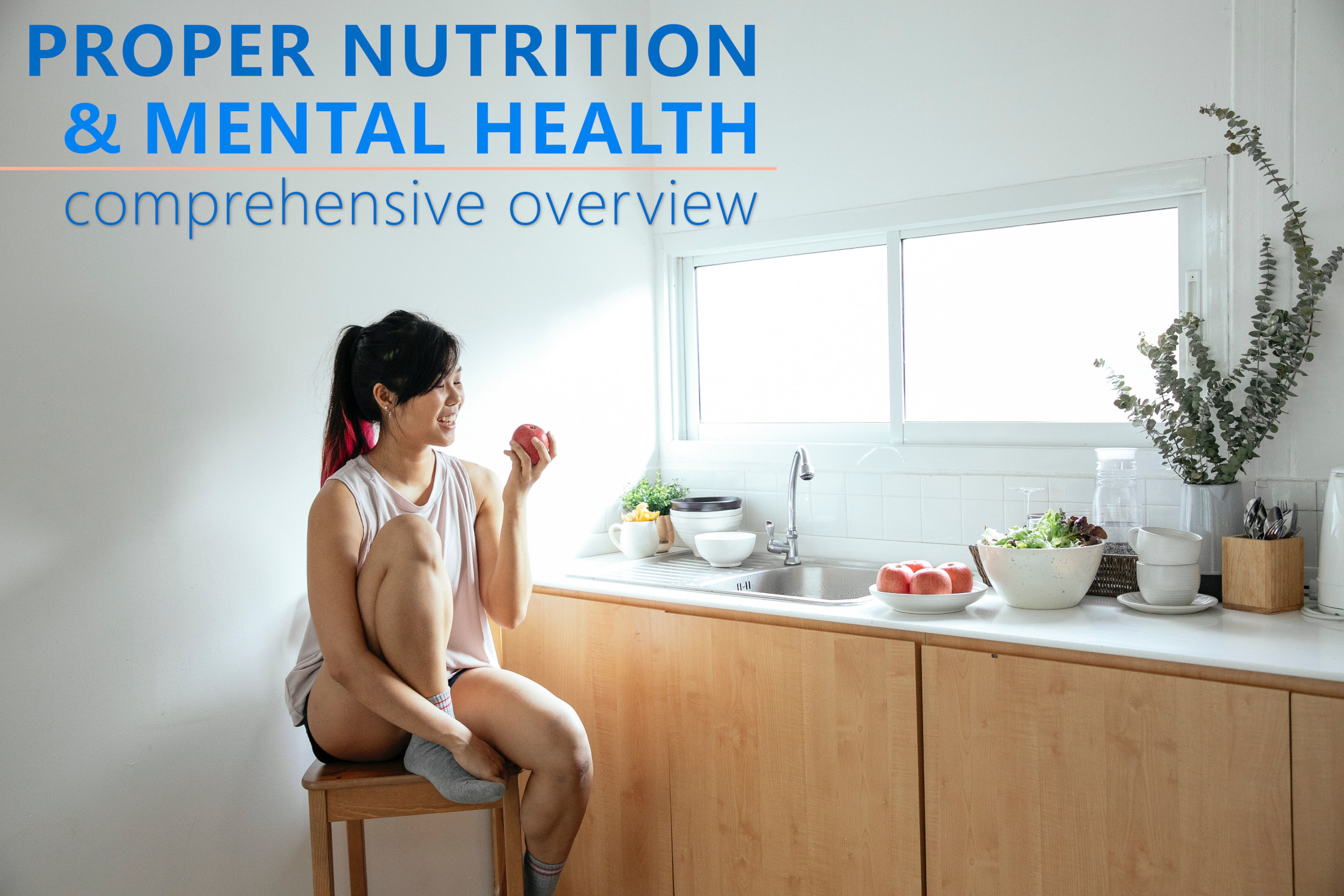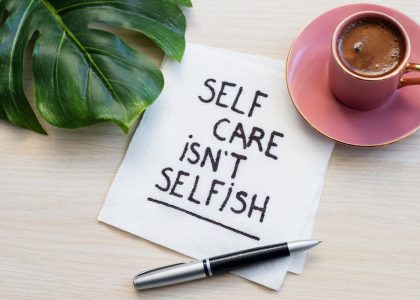Have you ever considered the link between what you eat and how you feel? What we eat has a big effect on how we feel, how we act, and how well we do in general. Research shows that certain nutrients improve mental health.
That’s right, certain foods and supplements containing key nutrients can improve the way the brain works, lessen the effects of sadness and anxiety, and even make people smarter.
MEDICAL DISCLAIMER: The statements and views in this article are not meant to diagnose or treat any mental condition, depression, anxiety or mental illness. Contact your health care provider immediately if you find your mental state to be unmanageable.
Why is Proper Nutrition Important in Mental Health?
In this blog post, we’ll talk about the key nutrients most closely linked to mental health and well-being. Here we’ll examine the nutrients which promote a healthy mind-body connection, to include omega-3 fatty acids, B vitamins, antioxidants, minerals, and probiotics. These are the top five nutrients that are good for mental health. So grab a healthy snack and settle back while we talk about how good food can feed our bodies and minds.
“Just like an expensive car, your brain can be damaged if you ingest anything other than premium fuel”
– Eva Selhub MD (Harvard Health)
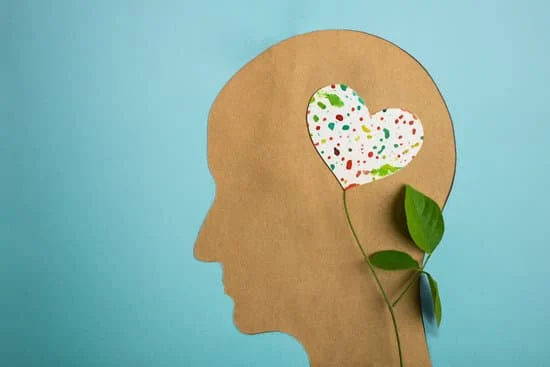
Tips for Starting a Nutrient-Rich Diet
Integrating a nutrient-rich diet into our day-to-day routines might feel overwhelming. However, with a firm commitment to becoming healthy in mind, body and spirit we can make health conscious changes; for example,
Employ a Dietician or Nutrition Specialist
✓ Consider working with a Registered Dietitian or Certified Nutrition Specialist with a focus on the mind-body connection.
✓ Opt for a personalized program with customized direction in designing an eating routine that meets your particular nourishment requirements.
Focus on Whole Foods & Antioxidants
✓ Let go of processed foods and all types of junk food. Instead focus on all-natural food sources.
✓ Prepare natural foods, vegetables, whole grains, lean proteins, and good fats.
✓ Select foods with anti-inflammatory and antioxidant properties.
Learn New Recipes & Food Prep Methods
✓ Make cooking and food prep fun! Explore healthy, nutrient rich recipes and flavors to keep your taste buds (and your gut) happy.
✓ Make an effort to learn different cooking techniques, flavors, and spices to improve your dinners’ taste and dietary benefits.
Make Meal Planning a Must
✓ Plan your meals and snacks ahead of time. Take out the guesswork of meal times.
✓ Grocery shop with a list containing gut friendly whole foods and nutrient packed snacks.
Learn About Nutrition & Gut Health
✓ A better understanding of nutrients and their affect on your happiness will encourage you to stay on track.
✓ Pay attention to cravings and impulse eating – learn what’s actually happening in your mind and body when you feel an urge to deter from a healthy diet plan.
Which Nutrients Affect Mood and Happiness?
Here we’ll take a deeper dive into the five most important nutrients affecting mood balance. Whether through dietary decisions or brain support supplements, understanding the job of nutrition and supplements in mental health is vital for improving our general well-being.
Omega-3 Fatty Acids Help Your Brain Work & Grow
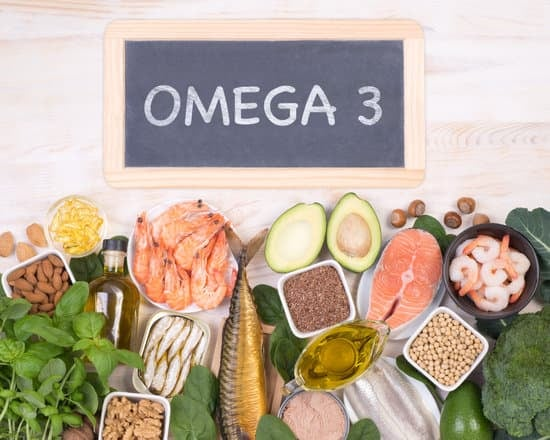
Omega-3 fatty acids are important nutrients that are needed for the brain to work and grow. The body can’t make these good fats, so we have to eat them or take pills to get them.
Studies have shown that omega-3s can reduce inflammation, which is linked to many mental health problems like sadness and worry. Several studies suggest a link in deficits in omega-3 fatty acids in people with mood disorders. Omega 3s seem to boost the production of mood-regulating chemicals like serotonin and dopamine.
Oily fish like salmon, mackerel, and sardines are a good source of omega-3s. Plant-based foods like chia seeds, flaxseeds, peanuts, and hemp hearts are good places for vegetarians to get their amount.
Even though more study is needed to figure out exactly how omega-3s affect mental health, it’s clear that eating them can only help your general health. So instead of eating fats that are bad for you, why not eat some tasty fish or sprinkle some seeds on your next meal? Your brain will appreciate it.
B Vitamins May Reduce Anxiety
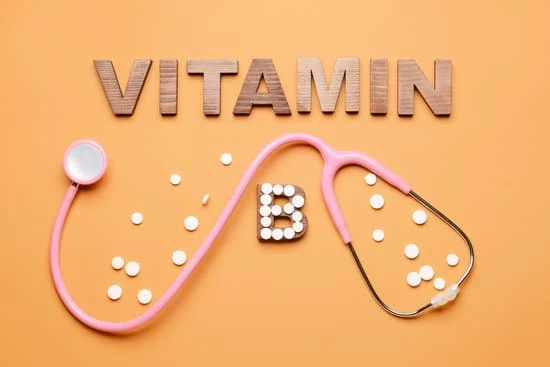
The B vitamins are a group of water-soluble vitamins that are very important for keeping your mind healthy. They are thiamine (B1), riboflavin (B2), niacin (B3), pantothenic acid (B5), pyridoxine (B6), biotin, folic acid, and cobalamin (B12). Vitamin B12 is often thought of as a booster for intense fitness training but it is also crucial in keeping the nervous system and brain functioning optimally.
These vitamins help control neurotransmitters, which are chemicals that send messages from one brain cell to another. Neurotransmitters like serotonin, dopamine, and norepinephrine are important for keeping your mood stable, helping you relax, and lowering your anxiety.
Studies have shown that not getting enough B vitamins can hurt your mental health and lead to things like sadness, anger, and even dementia. So, it’s important to make sure you get enough by eating foods like whole grains, beans, nuts, and cereals that have been supplemented.
Supplements are also a solid choice, especially for people who can’t get all the nutrients they need from their food or who have health problems that make it hard for them to absorb nutrients. But it’s important to talk to a doctor or nurse before starting any kind of nutrition plan.
Antioxidants Reduce Inflammation In the Brain & Body
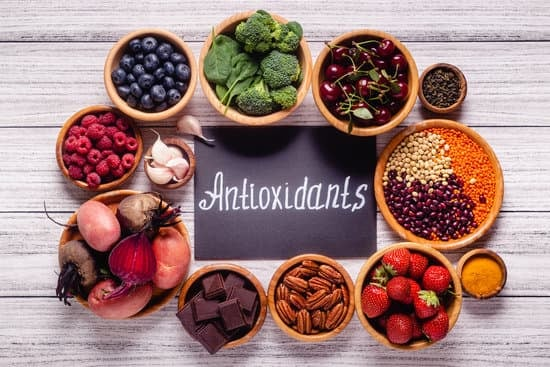
Antioxidants are chemicals that help stop the damage that free radicals cause to cells. Oxidative stress, which these unstable molecules can cause, has been linked to a number of health problems, such as cancer, heart disease, and Alzheimer’s disease.
Antioxidants come in many different forms and can be found in foods like fruits and veggies. Vitamins C and E, beta-carotene, selenium, and antioxidants are some of the most well-known.
Researchers have found that vitamins may also affect mental health. For example, some studies show that getting a lot of vitamin C may make anxiety and sadness disappear.
Flavonoids in blueberries or dark chocolate have also been linked to better brain function. On the other hand, selenium is thought to help reduce inflammation in the body, which is another cause thought to contribute to bad mental health.
It’s clear that eating foods high in antioxidants is good for our physical and mental health as a whole.
Minerals Control Cortisol & Help Produce GABA
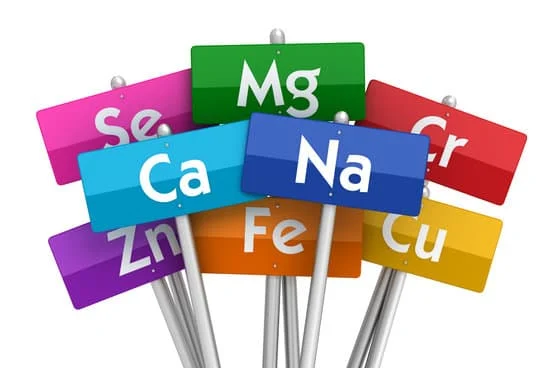
Minerals are important for keeping the brain and mind healthy and working well by producing dietary neurotransmitters. These micronutrients are important for making neurotransmitters, activating enzymes, and making energy for cells.
One of the most important chemicals for your mental health is magnesium. It helps control stress chemicals like cortisol and relax people by making more GABA (gamma-aminobutyric acid) in the brain. Low amounts of magnesium have been linked to sadness, nervousness, and trouble sleeping.
Zinc is another important mineral that helps keep your mood in check. It is a very important part of making serotonin, which is the “feel-good” hormone. Zinc also helps the defense system work well and guards against damage from toxic stress.
Several mental illnesses, such as ADHD, sadness, bipolar disorder, and schizophrenia, have been linked to not getting enough iron. Iron is important for getting blood to all parts of the body and brain. Having too little iron can make it harder to think and remember things.
Selenium is a protective mineral that is especially important for people with depression or anxiety because it helps reduce inflammation and reactive harm. Studies show that taking selenium supplements may make PMS feelings like worry or restlessness less severe.
Adding mineral-rich foods like whole grains, nuts, seeds, and beans to your diet will help you get enough nutrients, improving your physical and mental health.
Probiotics Support Gut Health & Mood Regulation
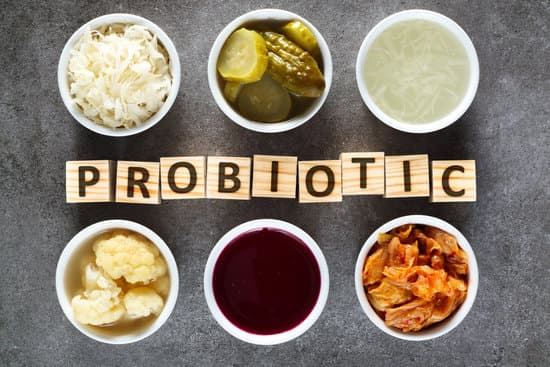
It’s clear that the right foods are important for our mental health. Omega-3 fatty acids can help relieve depression and anxiety symptoms. B vitamins are important for regulating mood and making energy. Antioxidants protect against oxidative stress, which can lead to mental health problems. Minerals like magnesium help you relax and sleep better while lowering your stress level. And probiotics support gut health, which has been linked to better mood.
Conclusion About Key Nutrients for Mental Health
Even though these key nutrients shouldn’t be thought of as an alternative for medical care or therapy when it’s needed, they could be a good addition to those things.
We can improve our general mental health if we focus on eating nutrient-rich foods or think about taking supplements with the help of a medical professional.
We need to start caring for ourselves from the inside out!


